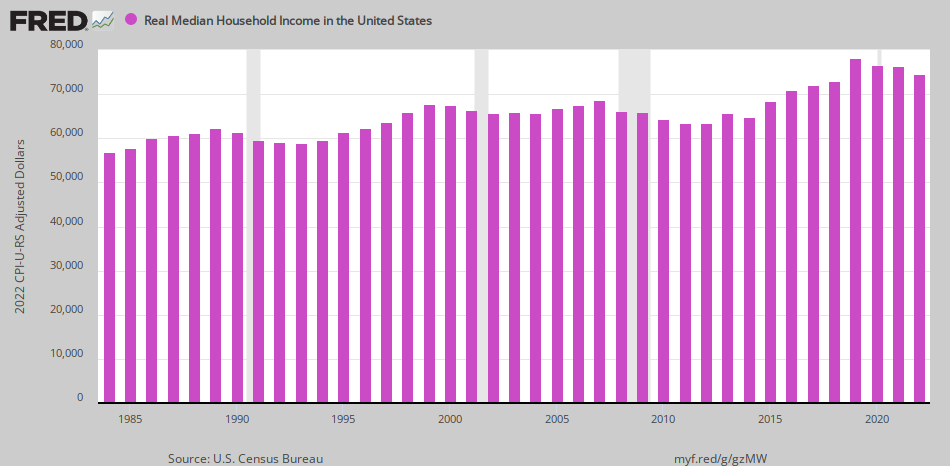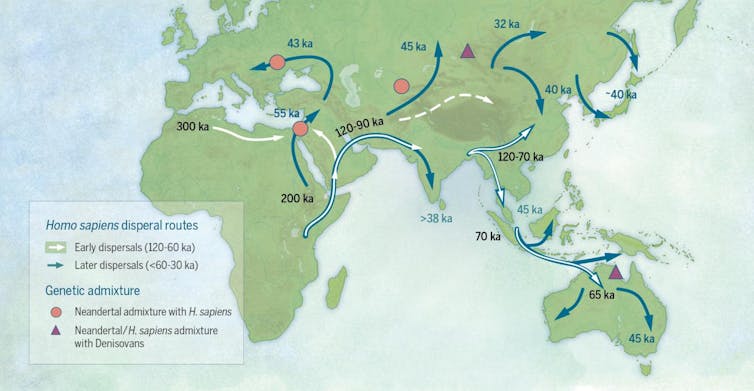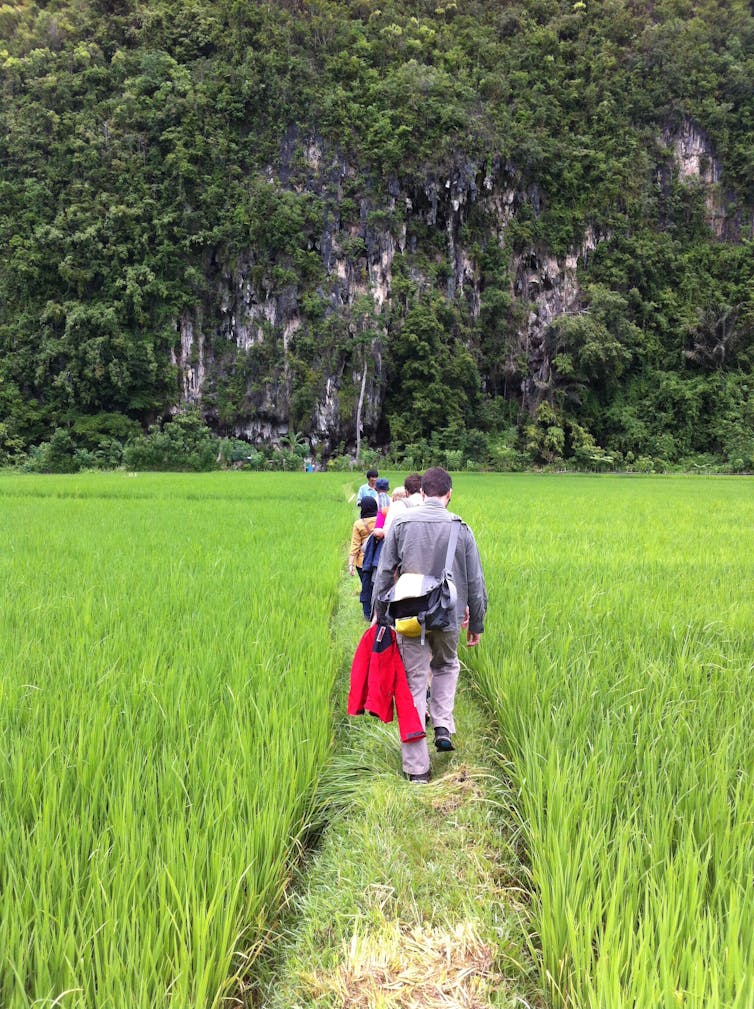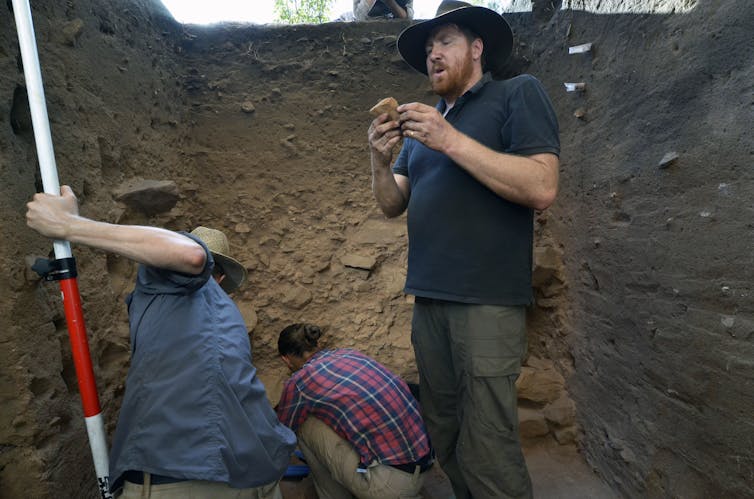I was reminded recently of Krishnamurti, a noted philosopher and thinker of the Twentieth Century. He seems to have been much forgotten, but then so are so many who are known only by the odd scholar. It is a shame really.
He has left us an extensive collection of his thinking mostly in the way of lectures with extensive question and answer sessions. You must find the time to dedicate to contemplative meditation in order to work with his oeuvre. it is well worth it for a serious student. In fact i think that a serious student of philosophy would be well advised to spend months on this work.
I know this alien to our present world and to most people and I am so sorry that this is so. We approach a time when we will have serious leisure and long lives. Yet this is of no value unless you master contemplation. Without it life is to easy to slip away from.
.
1934, 1935, What Is Right Action?
Auckland, New Zealand
Talk to Businessmen 6th April, 1934
http://jiddu-krishnamurti.net/en/1934-1935-what-is-right-action/jiddu-krishnamurti-what-is-right-action-07
Friends, I think that most of us think that it would be a marvellous
world if there were no real exploitation, and that it would be a
splendid world if every human being had the capacity to live naturally,
fully and humanly. But there are very few who want to do anything about
it. As ideals, as a Utopia, as a thing of a dream, everyone indulges in
it, but very few desire action. You cannot bring about a Utopia nor can
there be the cessation of exploitation without action.
Now, there can be action, collective action, only if there is first
of all individual thinking out of that problem. Every human being, in
sane moments, feels the horror of real exploitation, whether by the
priest, by the business man, by the doctor, by the politician, or by
anybody. We all feel really, in our hearts, the appalling cruelty of
exploitation, if we have given a single moment's thought to it. And yet
each one is caught up in this wheel, in this system of exploitation, and
we are waiting and hoping that by some miracle a new system will come
into being. And so, individually, we feel we have but to wait, let
things take their natural course, and by some extraordinary means a new
world will come into being. Surely, to create a new thing, a new world, a
new conception of organization, individuals must begin. That is, the
business people, or anyone in particular, must begin to find out if
their action is really based on exploitation.
Now, as I said, there is the exploitation of the priest based on
fear, there is the exploitation of the business man based on his own
aggrandizement, accumulation of wealth, greed, subtle forms of
selfishness and security; and as you are all here supposed to be
business men, surely you cannot leave every human problem aside and
concern yourselves wholly with business. After all, business men are
human beings, and human beings, so long as they are exploited, must have
this rebellious spirit in them continually. It is only when you have
reached a certain level where you are fairly secure that you forget all
about this condition, about changing the world, or bringing about a
certain attitude of spontaneous action towards life. Because we have
reached a certain stage of security, we forget, and feel everything is
all right; but behind it all one can feel that there cannot be
happiness, human happiness, so long as there is real exploitation.
Now, to me, exploitation comes into being when individuals seek more
than their essential needs; and to discover your essential needs
requires a great deal of intelligence, and you cannot be intelligent so
long as your needs are the result of the pursuit of security, of
comfort. Naturally, one must have food, shelter, clothing, and all the
rest of it; but to make this possible for everyone, individuals must
begin to realize their own needs, the needs which are human, and
organize the whole system of thought and action on that, and then only
can there be real creative happiness in the world.
But now what is happening? We are fighting each other all the time,
elbowing each other out, there is continual competitiveness, where each
one feels insecure, and yet we go on drifting, without taking a definite
action. That is, instead of waiting for a miracle to take place to
alter this system, it needs a complete revolutionary change, which each
one recognizes.
Although we may have a slight fear of world revolution, we all
recognize the immense necessity of a change. And yet, individually, we
are incapable of bringing about that change, because, individually, we
have not given consideration, individually we have not tried to find out
why there should be this continual process of exploitation. When
individuals are really intelligent, then they will create an
organization which will provide the essential needs for humanity, not
based on exploitation. Individually we cannot live apart from society.
Society is the individual and as long as individuals are merely
continually seeking their own self-security, for themselves or their
family, there must be a system of exploitation.
And there cannot be real happiness in the world if individuals, as
yourselves, treat the world's affairs, human affairs, apart from
business. That is, you cannot be, if I may say so, nationalistically
inclined, and yet talk about the freedom of trade. You cannot consider
New Zealand as the first important country, and then reject all other
countries, because you feel, individually, the essential need for your
own security. That is, sirs, if I may put it this way, there can be real
freedom of trade, development of industries, and so on, only when there
are no nationalities in the world. I think that is obvious. So long as
there are tariff walls protecting each country there must be wars,
confusion and chaos; but if we were able to treat the whole world, not
as divided into nationalities, into classes, but as a human entity; not
divided by religious sects, by capitalist class and the worker class;
then only is there a possibility of real freedom in trade, in
co-operation. To bring this about you cannot merely preach or attend
meetings. There cannot be mere intellectual enjoyment of these ideas,
there must be action; and to bring about action, individually we must
begin, even though we may suffer for it. We must begin to create
intelligent opinion, and thereby we shall have a world where
individuality is not crushed out, beaten to a particular pattern, but
becomes a means of expression of life; not the battered, conditioned
shape which we call human beings. Most people want and realize there
must be a complete change. I cannot see any way but by beginning as
individuals, and then that individual opinion will become the
realization of humanity.
Question: What intelligible meaning, may I ask, do you attach to the
idea of a masculine God as postulated by practically the whole of the
Christian clergy, and arbitrarily imposed upon the masses during the
dark ages of the past and until the present moment? A God conceived of
in terms of the masculine gender, must, by all the canons of sound and
sane logic, be thought of, prayed to, importuned and worshipped in terms
of personality. And a personal God - personal as we human beings
necessarily are - must be limited in time, space, power and purpose, and
a God so limited can be no God at all. In the very face of this
colossal imposition, arbitrarily imposed upon the masses, is it any
wonder that we find the world in its present catastrophic condition? God
to be God must, in sober and sane reality, be the absolute and infinite
totality of all existence, both negative and positive. Is that not so?
Krishnamurti: Sir, why do you want to know whether God is masculine
or feminine? Why do we question? Why do we try to find out if there is a
God, if it is personal, if it is masculine? Is it not because we feel
the insufficiency of living? We feel that if we can find out what this
immense reality is, then we can mould our lives according to that
reality; so we begin to preconceive what that reality must be or should
be, and shape that reality according to our fancies and whims, according
to our prejudices and temperaments. So we begin to build up by a series
of contradictions and oppositions, an idea of what we think God should
be; and, to me, such a God is no God at all. It is a human means of
escape from the constant battles of life, from this thing which we call
exploitation, from the inanities of life, the loneliness, the sorrows.
Our God is merely a means of escape from these things; whereas, to me,
there is something much more fundamental, real. I say there is something
like God; let us not inquire into what it is. You will find out if you
begin to really understand the very conflict which is crippling the mind
and heart: this continual struggle for self-security, this horror of
exploitation, wars and nationalities, and the absurdities of organized
religion. If we can face these and understand them, then we shall find
out the real meaning instead of speculating; the real meaning of life,
the real meaning of God.
Question: Do you follow Mahomet, or the Christ?
Krishnamurti: May I ask why anyone should follow another? After all,
truth or God is not to be found by imitating another: then we will only
make ourselves into machines. Surely, need we, as human beings, belong
to any sect, whether Muhammadanism, Christianity, Hinduism, or Buddhism?
If you set up one person as your Saviour, or as your guide, then there
must be exploitation; there must be the shaping of the world into a
particular narrow sect. Whereas, if we really do not set anyone up in
authority, but if we find out whatever they say, or any human being
says, then we shall realize something which is lasting; but merely
following another does not lead us anywhere. I take it that you are all
Christians, and you say you are following Christ. Are you? Are human
beings, whether they belong to Christianity or Muhammadanism or
Buddhism, really following their leaders? It is impossible. They don't.
So why call yourselves by different names and separate yourselves?
Whereas, if we really altered the environment to which we have become
such slaves, then we should be really Gods in ourselves, not follow
anybody. Personally, I do not belong to any sect, large or small. I have
found truth, God, or whatever you like to call it, but I cannot
transmit it to another. One can discover it only through consummate
intelligence, and not through imitation of certain principles, beliefs
and personages. Question: Is there an exterior force or influence known
as organized evil?
Krishnamurti: Is there? The modern business man, the nationalist, the
follower of religion - I call these people evils, organized evils;
because, sirs, individually we have created these horrors in the world.
How have religions come into being with their power to exploit
ruthlessly people through fear? How have they grown into such formidable
machines? We individually have created them through our fear of the
hereafter. Not that there is no hereafter: that is quite a different
thing altogether. We have created it, and in that machine we are caught;
and it is only the very rare few who break away, and those people you
call Christ, Buddha, Lenin, or X, Y, Z.
Then there is the evil of society as it is. It is an organized,
oppressive machine to control human beings. You think if human beings
are released they will become dangerous, they will do all kinds of
horrors; so you say, "Let us socially control them, by tradition, by
opinion, by the limitation of morality; and it is the same thing
economically. So gradually these evils become accepted as normal,
healthy things. Surely it is obvious how through education we are made
to fit into a system where individual vocation is never thought of. You
are made to fit into some work; and so we create a dual life, throughout
our lives, that of business from 10 to 5, or whatever it is, which has
nothing to do with the other, our private, social, home-life. So we are
living continually in contradiction, going occasionally, if you are
interested, to church, to keep up the fashion, the show. We inquire into
reality, into God, when there are moments of strife, moments of
oppression, moments when there is a crash. We say, "There must be some
reality. Why are we living?" So we gradually create in our lives a
duality, and therefore we become such hypocrites.
So, to me, there is an evil. It is the evil of exploitation
engendered by individuals through their longing for security,
self-preservation at all costs, irrespective of the whole of human
beings; and in that there is no affection, no real love, but merely this
possessiveness which we term as love. Question: Can you tell us how you
have arrived at this degree of understanding?
Krishnamurti: I am afraid it would take very long, and it may be very
personal. First of all, sirs, I am not a philosopher, I am not a
student of philosophy. I think one who is merely a student of philosophy
is already dead. But I have lived with all kinds of people, and I have
been brought up, as you perhaps know, to fulfil a certain function, a
certain office. Again, that means "exploiter". And I was also the head
of a tremendous organization throughout the world, for spiritual
purposes; and I saw the fallacy of it, because you cannot lead men to
truth. You can only make them intelligent through education, which has
nothing to do with priests and their means of exploitation - ceremonies.
So I disbanded that organization; and, living with people, and not
having a fixed idea about life, or a mind bound by a certain traditional
background, I began to discover what, to me, is truth: truth to
everybody - a life which one can live healthily, sanely, humanly; not
based on exploitation, but on needs. I know what I need, and that is not
very much, so whether I work for it by digging in a garden, or talking,
or writing, that is not of great importance.
First of all, to discover anything, there must be great discontent,
great questioning, unhappiness; and very few people in the world, when
they are discontented, desire to accentuate that discontent, desire to
go through it to find out. They generally want the opposite. If they are
discontented, they want happiness, whereas, for myself - if I may be
personal - I did not want the opposite, I wanted to find out; and so
gradually through various questionings and through continual friction, I
came to realize that which one may call truth or God. I hope I have
answered it.
Question: Tell us something of your idea of the hereafter.
Krishnamurti: Isn't it extraordinary! This is supposed to be a
meeting for business people, and we are talking about the hereafter,
God, and all the rest. It indicates that we are not interested in our
business at all; we are interested in this merely as a means of getting
money to exist; and our human interests are divorced from our daily
living.
Now, with regard to what lies hereafter. Perhaps you have read what
some of the great scientists in Europe are saying: that there is a
continuance after death. Some of them maintain that there is an
individual continuance, others with equal emphasis deny it. It is pretty
obvious that there is some kind of continuity, whether it is the
thought-form of the entity that dies, or the expression of the world
thought, and so on.
Now, let us find out, inquire into what we call individuality. When
we ask the question, "Is there a hereafter?" why do we ask it? Because
you want to know if you will continue as Mr. X when you die; or you want
to know because you love someone tremendously, and that person has
died. So let us find out what is this thing we call individuality - that
is, my brother, my wife, my child, or myself: what is it? When you talk
about Mr. X, what is that Mr. X? Is it not form, name, certain
prejudices, a certain bank account, certain class distinctions? That is,
Mr. X has become the focal point of this condition of society.
I hope I am explaining this. I will put it this way. An ordinary
individual now, as he is, is nothing else but the focal point of the
environment, of society, of religion, of moral edicts and economic
conditions - as the ordinary individual, he is that. Isn't it so? That
focal point, with its contradictions, prejudices, hopes, longings,
fears, likes and dislikes, that constitutes that bundle which we call an
individual, as Mr. X. Now, we want to know if that Mr. X shall live in
the hereafter. There is the possibility that he may live, and he lives
now. Wait a minute. That is not of importance, is it? Because what we
call individuals are nothing else but the result of false environment.
This focal point of the present state of individuality is really false,
isn't it? An ordinary man has to fight in this world to live at all. He
has to be competitive, ruthless, and he must belong to certain classes
of society, Bourgeois, Proletariat, Capitalist; or he belongs to certain
religious sects called by various names, Christianity, Hinduism,
Buddhism and so on. Surely these environments are false when I have to
fight ruthlessly my neighbour to live at all. Isn't there something
rotten in such a state? Isn't there something abnormal in dividing
ourselves into class distinctions? Isn't there something crude when we
have to call ourselves Christians, Hindus, Muhammadans or Buddhists? So
these false environments create friction in the mind, and mind
identifies itself with that conflict, identifies itself as Mr. X. And
then the question arises, "What happens? Shall I live, or not live?" As I
say, there is a possibility that they may live; but in that living
there is no happiness, creative intelligence, joy in life; it is a
continual battle. Whereas, if we understand the true significance of all
these environments placed on the mind - religious, social, and economic
- therefore freeing the mind from conflict, we shall find out that
there is a different focal unit, a different individuality altogether;
and I say that individuality is continuous; it is not yours and mine.
That individuality is the eternal expression of life itself, and in that
there is no death, there is no beginning and end; in that there is a
wider conception of life. Whereas, in this false individuality there
must be death, there must be continual inquiry whether I shall live or
shall not live. The fear is continual, haunting, pursuing.
Question: Do you think the social systems of the world will evolve to
a state of international brotherhood, or will it be brought about
through parliamentary institution, or by education?
Krishnamurti: As society is organized, you cannot have international
brotherhood. You cannot remain a New Zealander, and I a Hindu, and talk
about brotherhood. How can there be brotherhood really, if you are
restricted by economic conditions, by this patriotism which is such a
false thing? That is, how can there be brotherhood if you remain as a
New Zealander, holding on to your particular prejudices, your tariff
walls, patriotism, and all the rest; and I a Hindu living in India, with
my prejudices? We can talk about tolerance, leaving each other alone,
or my sending you missionaries and your sending me missionaries, but
there cannot be brotherhood. How can there be brotherhood when you are a
Christian and I am a Hindu, when you are priest-ridden and I am also
priest-ridden in a different way, when you have one form of worship and I
have another? - which does not mean that you must come to my form of
worship or that I must go into yours.
So, as things are, they will not result in brotherhood. On the
contrary, there is nationalism, more sovereign governments, which are
but the instruments of war. So, as social institutions exist, they
cannot evolve into a magnificent thing, because their very basis, their
foundation is wrong; and your parliaments, your education based on these
ideas, will not bring about brotherhood. Look at all our nations. What
are they? Nothing but instruments of war. Each country is better than
the other, each country beating another, inflaming this false thing
called patriotism. Please, you like certain countries, certain countries
are more beautiful than others, and you appreciate it. You enjoy beauty
as you enjoy a sunset, whether here, in Europe or America. There is
nothing nationalistic, no patriotic feeling behind it - you enjoy it.
Patriotism comes only when people begin to use your enjoyment to a
purpose. And how can there be real brotherhood, through patriotism, when
the whole form of government is based on class distinctions, when one
class that has everything rules the other which has nothing, or sends
representatives who have nothing to parliament? Surely this approach to
human state, human unity is impossible. It is so obvious, it does not
even need discussion.
So long as there are class distinctions developing into
nationalities, based on exploitation by the possessive class, or the
class which has the means of production in its hands, there must be
wars; and through wars you are not going to get brotherhood. That is
obvious. You can see that in Europe since the War: more national
feeling, greater flag-waving, higher tariff walls. That, surely, is not
going to produce brotherhood. It may produce brotherhood in the sense
that there will be a great catastrophe and people will wake up and say,
"For God's sake, let us wake up and be sensible." Eventually that may
produce brotherhood; but nationalities are not going to produce
brotherhood, any more than religious distinctions, which are really, if
you come to think of it, based on refined selfishness. We all want to be
secure in heaven - whatever that place is - safe, secure, certain, and
so we create institutions, organizations, to bring about the certainty,
and we call these religions, and thereby increase exploitation. Whereas,
if we really see the falseness of all these things, not only perceive
it intellectually but really feel it completely with our mind and heart,
then there is a possibility of brotherhood. If we perceive it and act,
then there is a voluntary, true, moral act. I call that a true moral act
when we perceive a thing completely and act, and not when forced by
circumstances, or there is brought about a brotherhood forced by the
sheer brutal necessity of life. That is, when business people, the
capitalist, the financiers, begin to see that this distinction does not
pay, that they cannot make more money, they cannot be in the same
position, then they will bring about environment forcing the individual
to become brotherly; as now you are forced by environment to be
unbrotherly, to exploit, so you will also be forced to co-operate.
Surely that is not brotherhood: that is merely an action brought about
by convenience, without human intelligence and understanding.
So, to really bring human intelligence into action, individuals must
morally and voluntarily act and then they will create an organization in
which they will be real fighters against exploitation. But that needs a
great deal of perception, a great deal of intelligent action, and you
can begin only with yourself; you can only tend your own garden, you
cannot look after your neighbour's.
Question: Please be candid. Can we know truth as you do, cease to
exploit, and still remain in business, or do you suggest we sell out?
Could you go into trade and remain as you are?
Krishnamurti: Sir, please, I am not dodging the issue. I will be
perfectly candid. As the system is organized, unless you withdraw into a
desert island where you cook and do everything for yourselves, there
must be exploitation. Isn't that so? It is obvious. As long as the
system is based on individual competition, security, possessiveness, as
its foundation, there must be exploitation. But cannot you be free of
that foundation because you are not afraid, because you have discovered
what are your essential needs, because you are rich in yourself?
Therefore, although you remain in trade, you find that your needs are
very few; whereas, if there is poverty of mind and heart, your needs
become colossal. But again, unless one is really honest, absolutely
frank, and does not subtly deceive oneself, what I have said can be used
to exploit further. I would not mind personally going into trade, but
to me it would have no value, because I have no need to go into trade.
Therefore, what is the use of my talking theoretically? Not that I have
money; but I would do anything reasonable, sane, because my needs are
very few, and I have no fear of being crushed out. It is when there is a
fear of losing - the fear of the loss of security, preservation - that
we fight. But if you are prepared to lose everything because you have
nothing - well there is no exploitation. This sounds ridiculous, absurd,
savage, primitive, but if you really think about it sanely, if you give
a few minutes of your real creative thought to it, you will see it is
not so absurd as all that. It is the savage who is continually at the
behest of his wants, not the man of intelligence. He does not cling to
things, because inwardly he is supremely rich; therefore his external
needs are very few. Surely we can organize a society which is based on
needs, not on this exploitation through advertising. I hope I have
answered your question, sir.
Question: Without wishing to exploit the speaker, I look upon him as
one of the greatest of all exemplifiers of philosophic altruism, but I
would much like him to tell his audience here this afternoon what belief
he has in the ultimate millennium, that no doubt he and the whole of
the human race seek.
Krishnamurti: Sir, to have a perfect millennium means the savage must
be as intelligent as anyone else, must have as perfect conditions as
anyone else. That is, all human beings living in the world at the
precise moment, at the same time, must all be happy. Surely that is the
millennium, isn't it? That is what we mean when we talk about it. All
right, sir. Wait a minute. Is such a thing possible? Surely it is not
possible. We think a millennium is a moment when the ideal has come into
being, when civilization has reached its highest pinnacle. It is like a
human being who shapes his life to a certain ideal, and reaches the
height. What happens to such a human being? He wants something else,
there is a further ideal. Therefore, he never reaches the culmination.
But when a human being lives, not trying to achieve, to succeed, to
reach a height, but is living fully, humanly, all the time, then his
action, which must be reflected in society, will not reach a pinnacle.
It will be constantly on the move, therefore continually increasing, and
not striving after a culmination.
1934, 1935, What Is Right Action?
Auckland, New Zealand
Talk to Businessmen 6th April, 1934
Jiddu Krishnamurti. What Is Right Action? The collected works of J.Krishnamurti, 1934..1935.
















